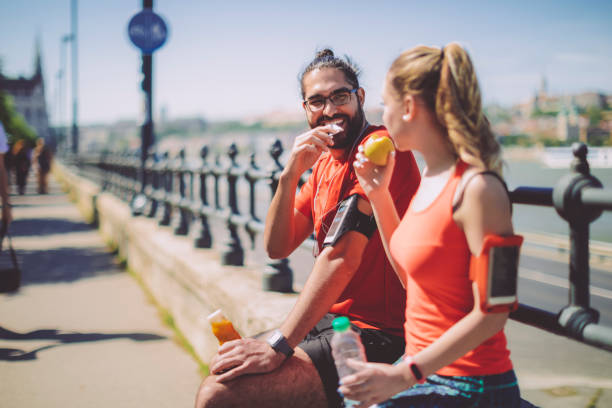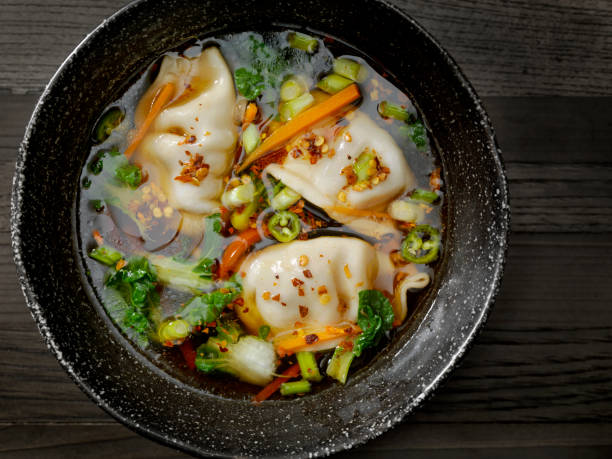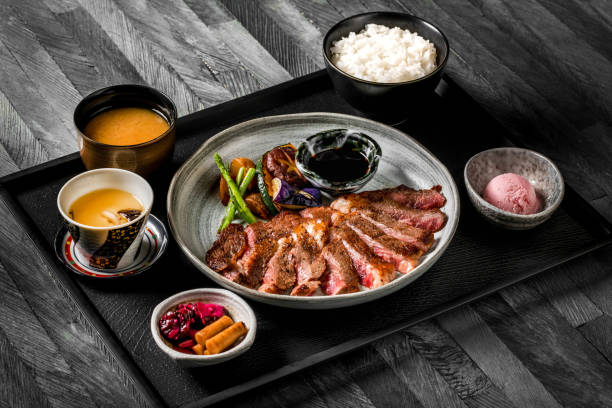While getting in a good sweat and increasing your heart rate may seem to be the most important aspects of working out, did you know that what you consume after exercising is equally important, Good post-workout nutrition will help you build muscle and recover quicker.
Who wouldn’t want these benefits?
You can maximize the benefits of exercising by selecting the right foods to fuel your body.
This article explains what you need to know about post-exercise nutrition.
Recovery: Macronutrients: Amounts and Timing
Each of the macronutrients, protein, carbohydrates, and fat, plays a significant role in your recovery after working out.
Your body uses glycogen to store carbohydrates during exercise. Your muscles can also become irritated by the stress of lifting weights or pounding the pavement.
Getting enough carbohydrates and protein during a workout is crucial to repairing and replenishing glycogen stores.
Studies on post-workout nutrition show that eating these macronutrients together can increase glycogen and protein production more than eating just carbs or protein.
These are some general guidelines to help you gain muscle and recover optimally after a workout.
- To maximize the refueling process, consume 21.5 grams of carbs/kg (0.5-0.7g/pound) within the first 30 minutes of a workout.
- 3 to 5 grams of protein per kg (0.1 to 0.2 grams/pound)
- Carbs and protein should be consumed in a 3:0 ratio. For example, 75g carbs to 25g protein.
Don’t worry if you can’t put together a meal with protein and carbs within half an hour of finishing a workout. If you eat within the first hour after a workout, your body will still be able to replenish glycogen and repair muscle tissue.
But what about fat?
Although your body relies on carbohydrates and protein for energy, it is important to include fat in your post-gym meals. Healthy fats are a good source of calories and can help improve your ability to absorb vitamins. They can also keep you full.
And let’s not forget about the last macronutrient…water! You can keep hydrated by replenishing the fluids you have lost through exercise. This will allow you to recover faster. Many factors affect the amount of water that a person requires. However, it is recommended to exercise frequently, especially in hot weather.
Micronutrients for Recovery
Regular exercise, particularly intense training, can increase your need for certain vitamins. You can support exercise recovery if you eat a diet that includes mostly nutritious foods. There are many foods you can avoid.
Exercise can cause electrolytes such as sodium and potassium to be lost through sweat. Iron is essential for oxygen delivery throughout the body. B vitamins are needed to convert food into energy. For athletes to maintain bone health and vitamins A and C and E and combat oxidative stress due to exercise, they may require more vitamin D and calcium.
Get some ideas for meals
We know how important it is to eat post-workout meals. Here are our top picks for foods you can eat to help your recovery.
Healthy Carbohydrates
- Potatoes are sweet, yellow, purple
- Whole grains: brown and farro grains of rice, quinoas, oats, barley, bulgur and teff.
- Fruits: apples, bananas, berries, grapes, peaches, pineapple, mango
- Legumes – Black beans, Lentils, Peas, Pinto Beans, White Beans
- Whole wheat products 100%: bread, pasta, English muffins, crackers
- Squash butternut. Acorn. Pumpkin.
Lean Proteins
- Meat: chickens, turkey, beef and lamb, as well as pork
- Eggs
- Dairy products Greek yogurt and kefir, milk (Chocolate or regular), cheese
- Fish: Salmon, sardines and halibut.
Satisfying Fats
- Avocados
- Nuts & Seeds: almonds, cashews and hemp seeds, chia seed, pumpkin seeds
- Avocado and olive oils
- Shredded coconut
Food sources of important micronutrients
- Potassium: tomatoes, potatoes, bananas, oranges, avocados, spinach
- sodium: sea salt, iodized salt, olives and celery, carrots
- Iron: meats, fish, leafy vegetables, and legumes
- Calcium: milk, leafy greens and soya, as well as almonds
- Vitamin D oily fish, fortified food (like orange juice and milk), sunlight
- Vitamins: Fish, leafy greens and legumes, and seeds (found in different amounts in some foods).
- Vitamin A sweet potatoes (butternut squash), carrots, kale and liver
- Vitamin C oranges and brussels sprouts, bell Peppers, strawberries
- Vitamin E almonds, peanuts and sunflower seeds, leafy greens
Breakfast
- Oatmeal with berries and nut butter (or nuts), or shredded coconut
- Avocado mashed on two slices of whole-grain toast. Salt and pepper.
- Egg scramble with spinach, carrots, eggs, breakfast potatoes, and berries
Lunch and dinner
- Burrito bowl made with brown rice, ground meat, avocado, peppers, onions, and shredded cheddar
- Lentils with roasted carrots and beets, shredded chicken, and yogurt sauce
- Fish served with a baked potato, butter, side salad and an orange
- Chicken salad on English muffins with sauteed butternut and kale
- Turkey breast wrapped in whole grain wrap, with hummus, bell peppers, strawberries and string cheese.
Snacks
- Smoothie made with leafy greens and berries, nut butter and water
- Sea salt and fruit salad with edamame steamer
- Peanut butter and banana
- Whole-grain crackers, guacamole and trail mix
- Apple slices, hard-boiled eggs
- Turkey slices, chocolate milk and turkey slices
You don’t always have the time to prepare meals. Instead, you can cook a few carbs and proteins in bulk to keep in your fridge. You can freeze pre-cooked brown rice and shredded poultry to make a quick meal after a hard workout. For a quick and satisfying meal, add avocado and salsa.
You don’t want to go home after a workout. It’s okay. No problem.
Conclusion
These tips can help you recover from a workout. It would be best to eat a healthy snack or meal after a hard workout. It’s a good idea to eat within half an hour of finishing a workout. Remember to grab your water bottle so you can rinse it all down.




